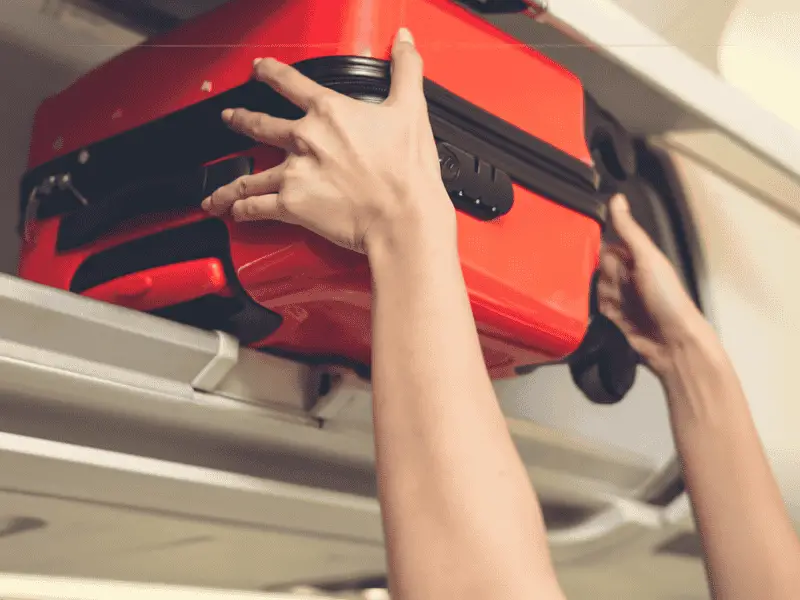A new wave of travelers are waging a silent war against airline baggage fees, deploying increasingly bold tactics to avoid paying for their luggage. From fake pregnancies to hidden compartments, these “luggage dodgers” are sharing their methods across social media, sparking debate about the ethics and legality of such practices.

At first glance, that £9.99 flight to Barcelona might seem like a steal. But airlines are making up for these rock-bottom fares elsewhere – specifically, in your suitcase. In 2023, Ryanair alone pocketed a staggering £3.5 billion from extra charges, while major carriers like British Airways’ parent company IAG drew nearly 10% of their revenue from similar fees.
Inside the Game of Cat and Mouse
“Gate agents have become bounty hunters,” says aviation analyst Maria Thompson. In the United States, Frontier and Spirit Airlines reportedly paid their gate staff £8 per caught passenger, spending £26 million on these commissions between 2022 and 2023. These practices have turned airport gates into checkpoints where travelers and staff engage in an increasingly tense game of hide and seek.
Social media has become a breeding ground for creative – and sometimes outrageous – circumvention strategies. Popular “hacks” being shared online include stuffing clothes into travel pillows, repurposing duty-free bags as carry-on luggage, and even faking pregnancy to conceal extra items.
Airlines Strike Back
The industry isn’t taking this lying down. Frontier Airlines CEO Barry Biffle, who earns £8.5 million annually, recently made headlines by comparing these practices to shoplifting. “These are people that are stealing,” he stated, arguing that such behavior creates inequity among passengers.
The battle has caught the attention of regulators. In Spain, budget carriers including Ryanair and easyJet recently faced fines for violating consumer rights regarding baggage policies. Meanwhile, the U.S. Senate has criticized certain airline fees as “junk charges,” suggesting potential future regulation.
Aviation economists estimate that airlines lose millions annually to baggage fee avoidance. However, consumer advocates argue that current pricing structures force passengers to resort to extreme measures. “When checking a bag costs more than your flight, something’s clearly broken in the system,” notes consumer rights expert James Mitchell.
Aviation safety specialists warn that some avoidance tactics could compromise emergency procedures. “Concealing bags under clothing or in makeshift containers isn’t just about avoiding fees – it could impede evacuation in an emergency,” explains safety consultant Rebecca Chen.
The Environmental Paradox
Ironically, strict baggage policies might have an unexpected environmental benefit. “Lighter planes burn less fuel,” explains environmental aviation researcher Dr. Thomas Green. “But this was never the airlines’ primary motivation.”
Some industry experts suggest a return to more inclusive pricing models. “The current system creates adversarial relationships between airlines and passengers,” says aviation economist Sarah Lewis. “A more transparent approach to pricing could benefit everyone.”
Travel experts emphasize that passengers can significantly reduce baggage fees through legitimate means. Professional organizer Lisa Chen recommends using compression packing cubes, choosing versatile clothing pieces, and planning outfits strategically. “You can pack for a week in a carry-on if you’re smart about it,” she says.
As this cat-and-mouse game continues, both sides appear locked in an escalating battle of wits. Airlines invest in stricter enforcement while passengers develop increasingly creative workarounds. Meanwhile, regulators worldwide are watching closely, suggesting that the future of airline baggage policies might look very different from today.
This ongoing struggle reflects a broader transformation in air travel, where the true cost of flying is increasingly hidden in a maze of supplementary fees. As one frequent flyer puts it: “These days, the ticket price is just the beginning of the story.”
For now, the battle continues at check-in counters and boarding gates across the globe, with no clear resolution in sight. As airlines tighten their policies and passengers seek new workarounds, one thing remains certain: the way we think about luggage and air travel is fundamentally changing.




